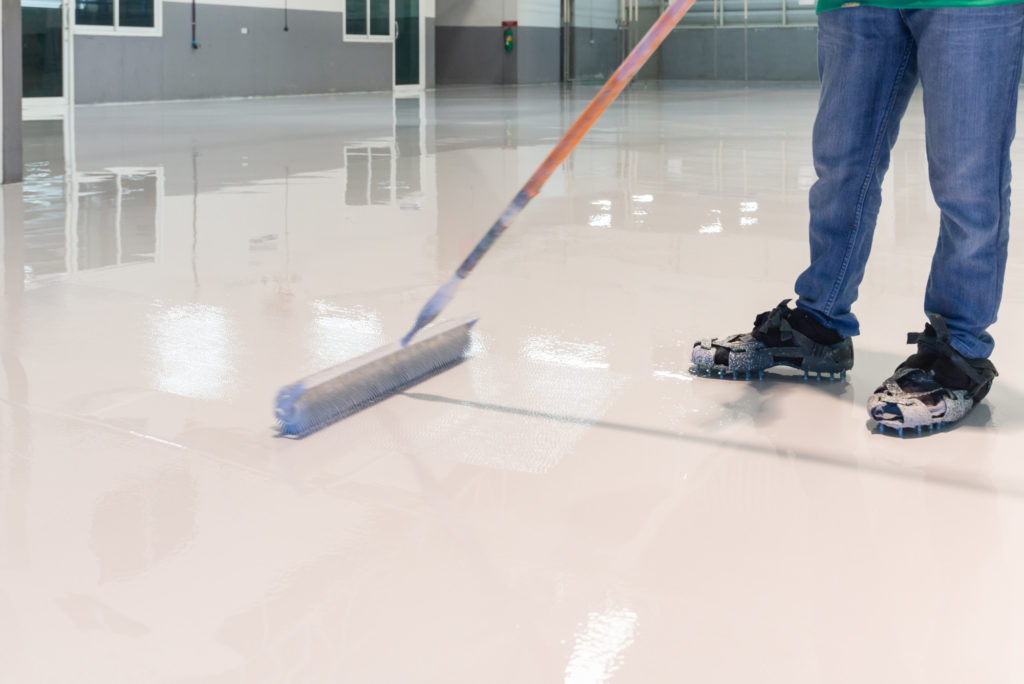
Selecting the right flooring for food manufacturing and beverage facilities goes beyond aesthetics—it’s a decision that directly impacts safety, hygiene, and operational efficiency. With numerous options available, business owners must weigh the pros and cons of each type to ensure they make the best choice for their specific food processing or handling environment.
Food-grade flooring is one of the most reliable options for food and beverage facilities due to its resilience against chemicals, moisture, and extreme temperatures. It complies with stringent hygiene standards, which helps prevent contamination and ensures that businesses meet industry regulations. Flooring experts who provide resurfacing Melbourne always suggest epoxy flooring for food industry.
Advantages
Epoxy flooring is highly regarded for its strength and adaptability, making it a popular option in the food industry. Its seamless, non-porous surface is easy to clean and prevents bacteria from accumulating, making it ideal for maintaining food safety standards. Epoxy’s ability to resist wear and chemical damage is another reason it stands out, ensuring durability in even the harshest environments. This flooring type is also aesthetically pleasing, with a sleek finish that contributes to a professional appearance.
Disadvantages
However, epoxy flooring has a few downsides. The installation process can be time-consuming as it requires an extended curing period, potentially disrupting operations. Additionally, exposure to UV light may cause epoxy to discolour over time, which could affect its appearance in areas exposed to direct sunlight.
Advantages
Polyurethane floor coatings are known for their ability to withstand extreme conditions, making them a go-to option for facilities with heavy equipment and temperature fluctuations. These coatings excel in areas near ovens and fryers, as they can endure high heat and thermal shock. The flexibility of polyurethane also makes it better suited to absorb impacts compared to harder surfaces, reducing the risk of cracking and providing comfort for workers who spend long hours on their feet.
Disadvantages
On the flip side, polyurethane flooring tends to be more expensive than other options. Installation must be carefully managed to ensure proper adhesion, and similar to epoxy, it requires a curing period before it’s fully operational. This can also cause delays in production if not planned correctly.
Advantages
Food-safe epoxy coatings are specially formulated to meet the high hygiene standards demanded in food processing environments. These coatings create a fully sealed surface that prevents contamination, making it easier to clean and maintain sanitation. Customisation options, such as anti-slip properties and colour choices, add to its functionality, offering both safety and design flexibility.
Disadvantages
The primary downside of food-safe epoxy is its vulnerability to certain chemicals and sunlight, which can cause degradation and discolouration over time. Additionally, proper planning is necessary to minimise operational downtime during installation, as the coatings require time to cure fully before use.
Advantages
Ceramic tiles offer both hygiene and design flexibility. Their glazed surfaces are stain and odour-resistant, making them easy to clean, which is essential in food handling areas. Facilities can also customise ceramic tiles in various colours and patterns, allowing them to align their flooring with branding needs without sacrificing functionality.
Disadvantages
Despite their durability, ceramic tiles can crack under heavy impact, especially in areas with heavy machinery or frequent equipment movement. Furthermore, the grout lines between tiles may harbour bacteria if not sealed and maintained properly, requiring regular resealing to uphold hygiene standards.
Advantages
Vinyl flooring is an economical and practical option for food and beverage facilities. It offers water resistance, which is essential in environments where spills and moisture are common. Additionally, vinyl comes in a wide range of designs, allowing it to mimic more expensive materials at a fraction of the cost. This versatility makes it a cost-effective solution for business owners looking to balance function and aesthetics.
Disadvantages
While vinyl is affordable and adaptable, it’s less durable in high-impact areas. Over time, it may suffer from wear and tear, especially in high-traffic zones. If not installed seamlessly, vinyl can also trap bacteria in the seams, potentially compromising the hygiene of the facility.
Overview
Flooring in food manufacturing and handling facilities is subject to strict regulatory standards in Australia, set by Food Standards Australia New Zealand (FSANZ) and the Australian Building Codes Board (ABCB). These regulations mandate that flooring be non-porous, easy to sanitise, and resistant to the harsh cleaning agents commonly used in food environments.
Impact on Flooring Choice
Compliance with these regulations is essential to avoid penalties and operational disruptions. Choosing flooring materials that not only meet current standards but can also adapt to future regulatory updates ensures long-term compliance and operational flexibility.
The ability to maintain flooring easily is crucial in the food industry. Floors must withstand frequent and rigorous cleaning protocols without degrading. Selecting flooring that is both durable and easy to maintain can save a business from costly repairs and replacements over time.
Longevity is another important factor. Flooring in food manufacturing and handling areas must endure heavy traffic, chemical exposure, and mechanical wear. Prioritising materials with extended lifespans that maintain their structural integrity ensures a cost-effective and sustainable investment.
There’s no one-size-fits-all solution for food industry flooring. The choice between epoxy, polyurethane, ceramic, or vinyl depends on specific operational needs, budget constraints, and regulatory compliance. It’s better if you discuss the situation with an epoxy flooring contractors company in Melbourne. They can help you finalise the flooring type based on the food and operations you need to conduct on a daily basis. By evaluating these factors, businesses can select the flooring that best supports their safety, hygiene, and operational goals.
We provide a comprehensive selection of customized concrete grinding, sealing, polishing, and surface preparation services for both indoor and outdoor environments in addition to our extensive commercial grind and seal services.